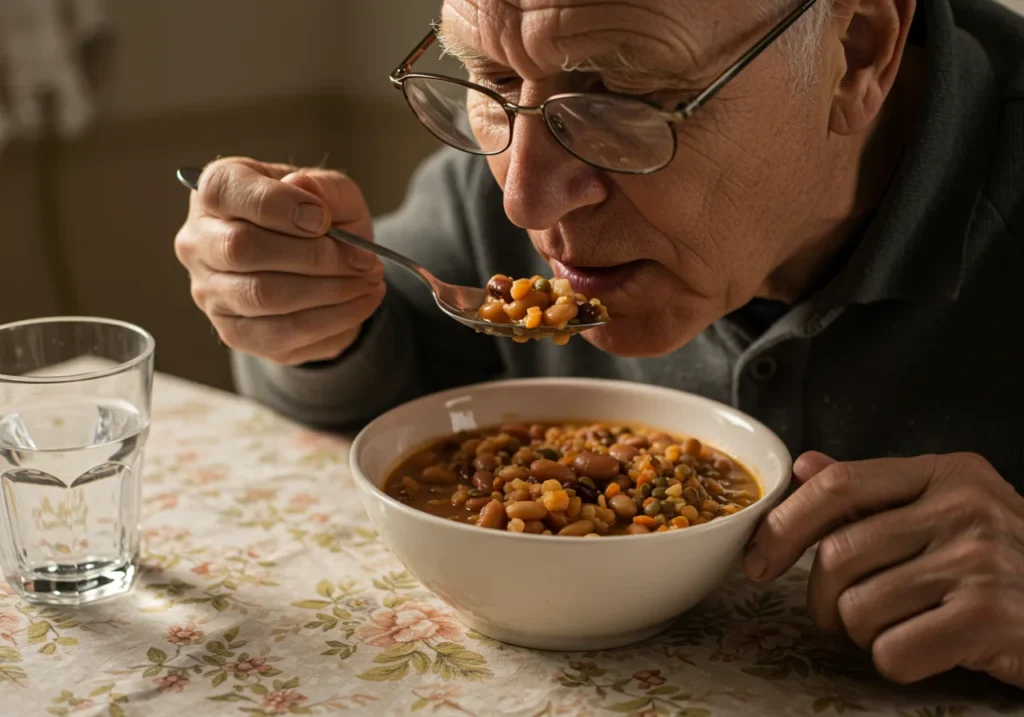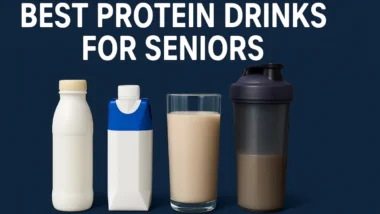How to Maintain a Heart-Healthy Diet in Retirement | Senior Nutrition Guide
According to the Centers for Disease Control and Prevention (CDC), heart disease is the leading cause of death for adults aged 65 and older in the U.S., accounting for 697,000 deaths in 2020 alone — that’s 1 in every 5 deaths.
As people enter retirement, lifestyle changes—including shifts in diet and physical activity—play a huge role in either preventing or accelerating heart problems. It’s never too late to take charge of your health. With the right food choices and habits, you can protect your heart, boost energy, and enjoy the years ahead.
Why Is Heart Health So Important in Retirement?
Your heart is a muscle, and just like your biceps or legs, it needs regular care and attention—especially after 60.
Here’s why heart health becomes more crucial as you age:
- Arteries naturally stiffen with age, increasing the risk of high blood pressure.
- Cholesterol levels tend to rise, due to changes in metabolism and activity levels.
- Slower metabolism means your body processes food and nutrients differently.
- Weight gain is common, especially if physical activity decreases.
According to the American Heart Association, over 77% of men and 78% of women aged 60-79 have cardiovascular disease. That’s no small number. But retirement isn’t the time to panic—it’s the time to act smart.
What Makes a Diet “Heart-Healthy”?
A heart-healthy diet focuses on:
- Lowering LDL (“bad”) cholesterol
- Raising HDL (“good”) cholesterol
- Controlling blood pressure
- Maintaining healthy blood sugar
- Reducing inflammation
To hit those goals, your daily meals should be:
| Nutrient / Food Type | Recommended Approach |
|---|---|
| Fruits and Vegetables | 5–10 servings per day, include a rainbow of colors |
| Whole Grains | Oats, quinoa, brown rice — high in fiber |
| Lean Proteins | Chicken, fish, legumes, tofu — low saturated fats |
| Healthy Fats | Olive oil, avocado, nuts — rich in omega-3s |
| Sodium (Salt) | Less than 1,500mg per day |
| Added Sugars | Keep it under 25g per day (6 tsp) |
| Water | Stay hydrated—8 to 10 cups/day |
Learn More: Does Food Lion Have a Senior Discount Day?
Top 15 Heart-Healthy Foods for Retirees
These aren’t just “healthy” foods—they’ve been proven by science to support heart health.
1. Salmon
Loaded with omega-3 fatty acids, which lower blood pressure and triglycerides.
2. Oats
High in soluble fiber, helps lower LDL cholesterol.
3. Leafy Greens (Spinach, Kale)
Rich in potassium and nitrates, which support healthy arteries.
4. Berries
Packed with antioxidants and polyphenols, help reduce inflammation.
5. Nuts (Almonds, Walnuts)
Contain unsaturated fats and magnesium for blood pressure control.
6. Avocados
Provide healthy monounsaturated fats that reduce LDL cholesterol.
7. Beans & Lentils
Great plant protein and fiber combo; support lower blood pressure.

8. Whole Grains (Quinoa, Brown Rice)
Offer long-lasting energy and lower heart disease risk.
9. Olive Oil
Contains heart-protective polyphenols and healthy fats.
10. Dark Chocolate (70% or higher)
Flavanols help improve blood flow—but limit to a square or two!
11. Tomatoes
Contain lycopene, linked to lower heart disease risk.
12. Sweet Potatoes
High in fiber, potassium, and vitamin C.
13. Flaxseeds
Add omega-3s and fiber to smoothies or cereal.
14. Tofu or Tempeh
Great alternatives to red meat—low in saturated fat.
15. Green Tea
May help lower LDL cholesterol and improve blood vessel function.
Foods to Limit or Avoid
Just as important as what to eat… is what not to eat.
| Food/Ingredient | Why Avoid? |
|---|---|
| Processed Meats | High in sodium and nitrates |
| Fried Foods | Loaded with trans fats and calories |
| Sugary Drinks | Cause blood sugar spikes and increase fat storage |
| Excess Salt | Raises blood pressure |
| White Bread & Pasta | Low fiber, spikes blood sugar |
| Packaged Snacks | Often high in trans fats and refined sugars |
| Alcohol (excessive) | Can raise blood pressure and triglycerides |
Learn More: How To Boost Immune Health With Diet As a Senior?
The Psychology of Eating in Retirement
Retirement is a big life shift. And with that shift, your daily routines—especially eating—can go sideways.
Here’s what happens:
- More time = more snacking
- Social isolation = emotional eating
- Fewer obligations = fewer structured meals
What helps?
- Meal prepping ahead of time
- Eating with friends or family
- Avoiding emotional eating triggers (boredom, TV time)
- Practicing mindful eating (put down the phone!)
Easy Heart-Healthy Meal Plan (1 Day Example)
| Meal | What to Eat |
|---|---|
| Breakfast | Oatmeal with berries, flaxseeds, and almond milk |
| Snack | 1 small apple + 10 almonds |
| Lunch | Grilled salmon salad with olive oil vinaigrette |
| Snack | Low-fat yogurt or hummus with veggie sticks |
| Dinner | Quinoa with sautéed spinach and grilled chicken |
| Dessert | 1 square of dark chocolate + herbal green tea |
Retirement Grocery List for a Healthy Heart
Here’s a sample shopping list to make your next grocery trip a breeze:
Fruits & Veggies:
- Berries
- Leafy greens (spinach, kale)
- Tomatoes
- Avocados
- Sweet potatoes
- Apples
- Carrots
Grains & Legumes:
- Oats
- Brown rice
- Quinoa
- Lentils
- Chickpeas
- Whole-grain bread
Proteins:
- Salmon
- Skinless chicken breast
- Tofu
- Eggs
Healthy Fats:
- Olive oil
- Almonds
- Walnuts
- Flaxseeds
Dairy or Alternatives:
- Low-fat yogurt
- Almond milk
- Cheese (low-sodium)
Common Myths About Senior Diets & Heart Health
Myth #1: “It’s too late to start eating healthy.”
Truth: Studies show even small changes in diet improve heart health at any age.
Myth #2: “Low-fat means heart-healthy.”
Truth: Healthy fats like olive oil and nuts are crucial for heart function.
Myth #3: “Seniors don’t need as much protein.”
Truth: Aging increases the need for protein to maintain muscle and heart tissue.
Myth #4: “Salt substitutes are always safe.”
Truth: Many salt substitutes contain potassium, which can affect kidney or heart conditions. Always consult your doctor.
Tips to Stick with a Heart-Healthy Diet
- 🍽️ Eat from smaller plates to control portions
- 🥤 Drink water before meals to avoid overeating
- 🥕 Keep healthy snacks within reach
- 📅 Plan meals weekly to avoid last-minute junk food
- 🚶♀️ Pair your diet with daily walking or light exercise
- 👩⚕️ Consult a registered dietitian for a customized plan
Final Thought
Living your best retired life isn’t just about travel or hobbies—it’s about having the energy and health to enjoy them. And that starts on your plate.
Building a heart-healthy diet doesn’t mean overhauling everything overnight. It means small, intentional choices, like swapping white bread for whole grain, or grilled fish instead of fried chicken. Over time, those small choices add up to a big difference.
So, let your retirement be the healthiest chapter yet. Your heart will thank you.
FAQs
How much sodium is too much for someone over 65?
Less than 1,500mg per day is ideal, according to the American Heart Association.
Can I still eat red meat occasionally?
Yes, but limit it to lean cuts (like sirloin) and only 1-2 times per week.
Should I take supplements for heart health?
Omega-3 and CoQ10 are common, but always check with your doctor first.
Is coffee bad for my heart?
Moderate coffee (1–2 cups a day) has been linked to heart benefits—but skip the sugar and creamers.
Do I need to count calories?
Not necessarily. Focus on nutrient-dense foods, fiber, and portion control.









